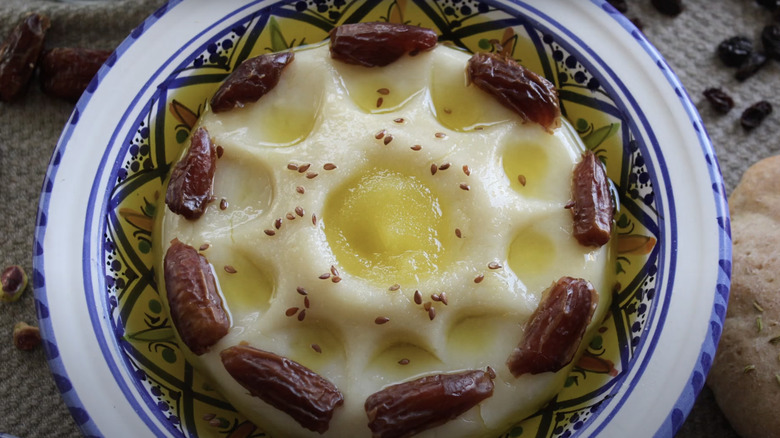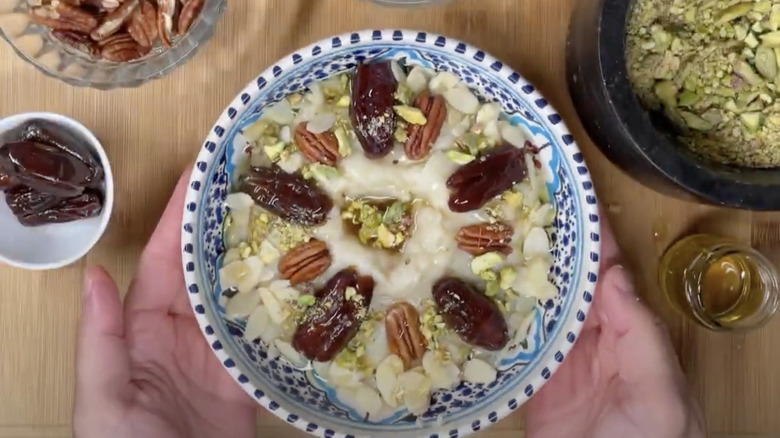In Morocco, Eid Al-Fitr Mornings Begin With The Sweet L'Assida
Marking the conclusion of Ramadan, a time of fasting, celebrations for the Muslim holiday of Eid al-Fitr are delightfully food-centric, with many regional specialties. On the savory side, you can find beef Rendang served in Muslim households in Malaysia and Singapore, or bolani, a Middle Eastern take on hand pies in Afghanistan. On the sweet side, you can dine on perfumed Lokum, aka Turkish delight, or honey-soaked baklava, both specialties of Turkey and the Middle East. Morocco kicks the feast off in the morning with a bowl of slightly sweet, definitely decadent L'Assida.
Resembling white porridge, the simplest iteration of this dish is made up of boiled couscous sweetened with honey, lightly spiced, and enriched with butter. More complicated takes are bejeweled with dried fruit and nuts like verdant pistachios and golden dates. These flavorful accompaniments are often arranged artfully and elaborately. Particularly popular in other Maghreb communities like Tunisia and Algeria, L'Assida is often placed in the illustrious center of the table. Why does this humble and sweet semolina porridge carry such importance during Eid al Mawlid? It is said to have been a favorite dish of the Prophet Muhammad. So what all goes into making L'Assida?
A sweet take on semolina porridge
Start with four parts water to one part couscous. Once the water comes to a boil, add the couscous and stir, cooking for about 20 minutes while the mixture begins to thicken and the texture of the couscous softens. You may be surprised at the texture of boiled couscous, as it is distinctly more gelatinous and thick than steamed couscous. Boiled couscous homogenizes into a sticky porridge.
Once you have this porridge base, dot the creamy white surface with butter and honey. If you want to make it extra decadent, add chopped pistachios, almonds, and pecans, as well as dried dates, raisins, or cherries. Arrange them like jewels in a crown for a stunning bowl of L'Assida.
Keep in mind that Moroccan L'Assida is slightly different from other versions, as this porridge is made with fine-grind semolina couscous, while others, like the Tunisian variant, are made with ground zgougou (Aleppo pine nuts). However, Aseeda, a North African specialty, is more like a molded, sticky dough made with plain wheat flour and water and sweetened with date syrup rather than honey. Either way, if you're looking to experience one of the simpler pleasures of Moroccan cuisine, consider starting with this classic Eid dish.

